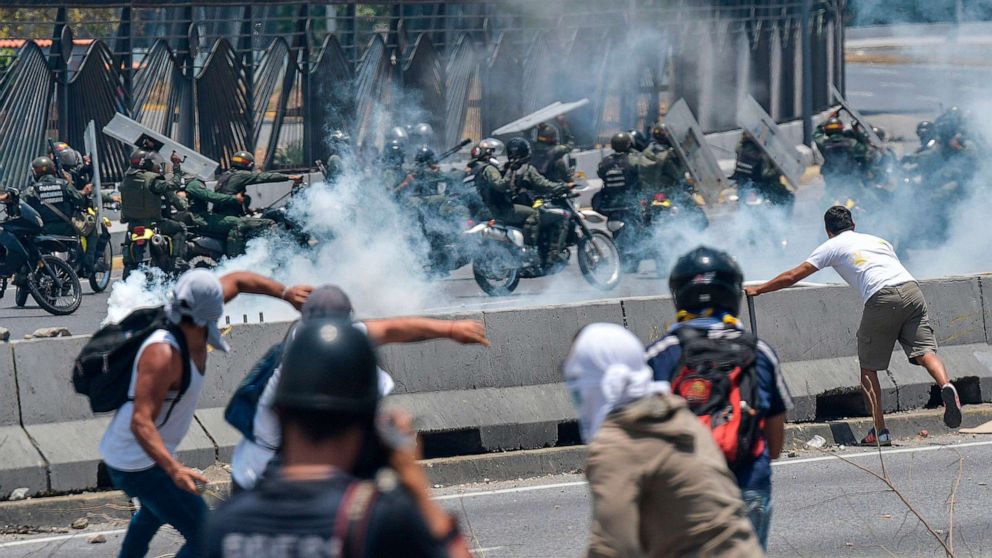US officials still weighing military options for Venezuela amidst another day of protest
The Trump administration is weighing options for what to do next in Venezuela to support opposition leader Juan Guaido in his effort to oust Nicolas Maduro, the socialist president embattled by mass protests and the country's economic crisis.
Guaido supporters turned out in the streets of the capital Caracas again on Wednesday, with skirmishes between protesters and security forces deploying tear gas, but pro-Maduro demonstrations also took place to mark May Day, the socialist holiday.
Throughout the day Wednesday, the size of crowds multiplied, just as they had on Tuesday when security forces loyal to Maduro used force, including rubber bullets and an armored vehicle mowing down some protesters. Similar scenes emerged Wednesday with pro-Maduro forces on motorcycles dispersing pro-Guaido demonstrators near an air base in Caracas. The pro-Maduro forces again deployed tear gas and crowd-control vehicles.
It was not immediately clear how many supporters had turned out for either side, with information inside the country hard to come by.
Senior U.S. administration officials, including Secretary of State Mike Pompeo, acting Defense Secretary Patrick Shanahan, Chairman of the Joint Chiefs of Staff Gen. Joseph Dunford, and National Security Advisor John Bolton, will meet at the White House Wednesday afternoon. With the situation on the ground still "extraordinarily fluid," according to Shanahan, the U.S. says it is still weighing military options.
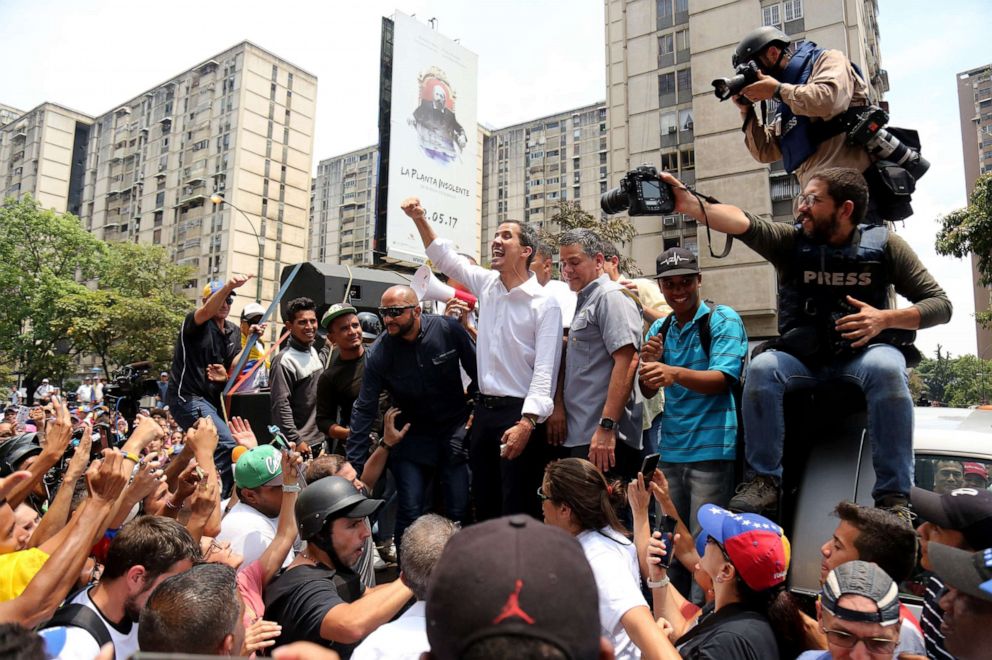
Shanahan canceled a trip to Europe to discuss those options, a spokesperson said, and Dunford told the House Armed Services Committee the U.S. was collecting intelligence "to make sure we have good visibility on what's happening down in Venezuela and also be prepared to support the president should he require more from the U.S. military."
"We'll be looking at a range of different possibilities," Bolton said at the White House Wednesday. "People know [Maduro's] regime has failed. It's going to fall. The question is whether we can get a transfer to an interim president who can conduct elections."
Guaido, the leader of the opposition-controlled National Assembly, was sworn in as interim president by that body in January. He was immediately recognized by the U.S. and ultimately 53 other countries as the legitimate leader, but Maduro has derided that as an American-backed coup.
Guaido gave an impassioned speech at a rally Wednesday, warning that, "Difficult days are probably coming, because of the push back, the persecution, the internal witch hunt by the armed forces," but that change was coming.
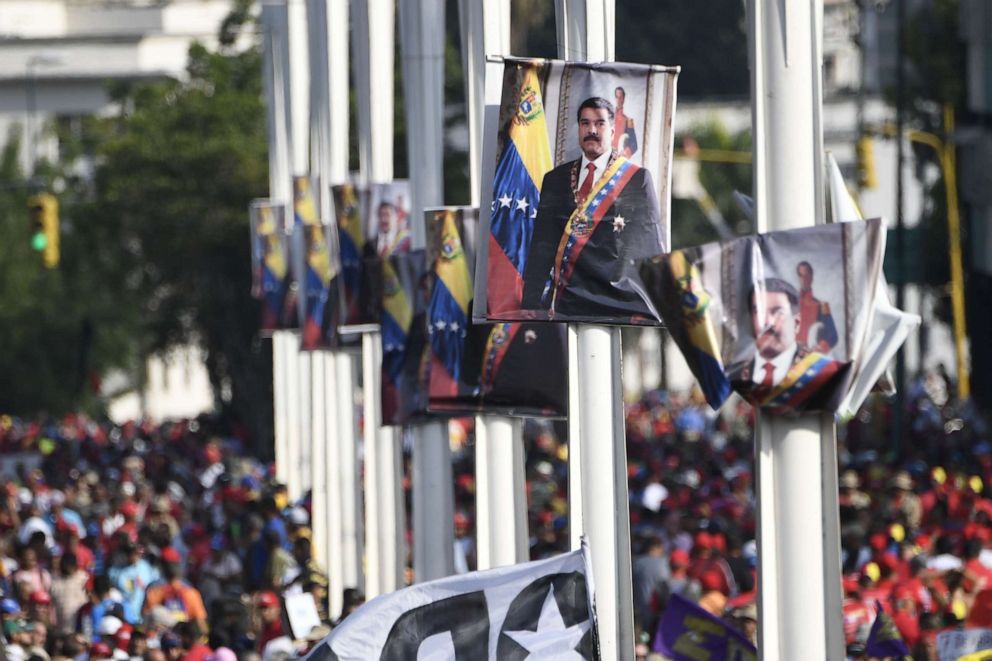
"We are strong, are are committed, we are on the right path," he said atop a vehicle surrounded by hundreds of people, according to the Associated Press.
After laying low during the day Tuesday, Maduro spoke late last night in a televised address and vowed that protesters against his government "cannot go unpunished... We know who they are, we have to look for them. There can be no impunity, there must be justice for there to be peace in Venezuela."
He also dismissed Pompeo's claims that he was ready to flee the country, but was convinced to stay by the Russian government.
"Mr. Pompeo, please, what lack of seriousness," Maduro said in a televised meeting, surrounded by his Defense Minister Vladimir Padrino Lopez and other top officials -- a visible sign that he maintained the backing of the country's military and security service, at least for now.
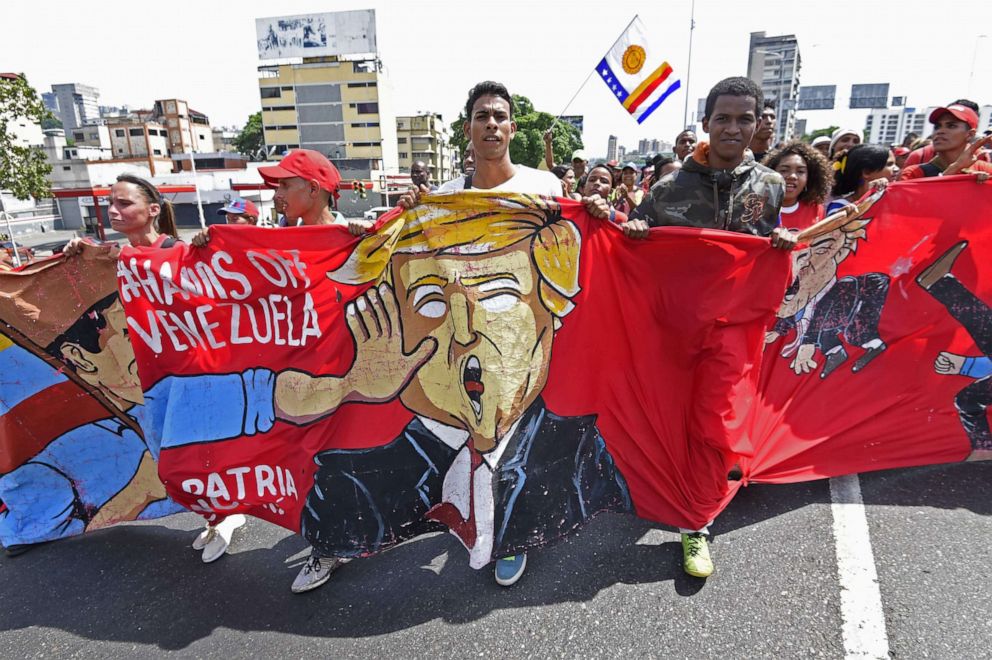
Pompeo and Bolton have painted a different picture, saying Maduro was on the brink of relinquishing power and that his senior aides were in negotiations to switch allegiance to Guaido.
In addition to Defense Minister Padrino Lopez, the chief of the National Guard Ivan Rafael Hernandez Dala and Supreme Court chief judge Maikel Moreno were in talks with the opposition to abandon Maduro and back Guaido, according to U.S. officials.
“They negotiated for a long time on the means of restoring democracy, but it seems that today they are not going forward,” U.S. envoy for Venezuela Elliott Abrams told reporters Tuesday.
Although Manuel Ricardo Cristopher Figuera, the head of the Venezuelan intelligence service, known as SEBIN, did throw his support behind Guaido late Tuesday, most senior leaders maintained support for Maduro. Some U.S. officials blamed Russia for that.
"We literally had Nicolas Maduro getting prepared to get on his airplane and head out of the country before he was stopped -- stopped, really at the direction of the Russians," Pompeo said Tuesday.
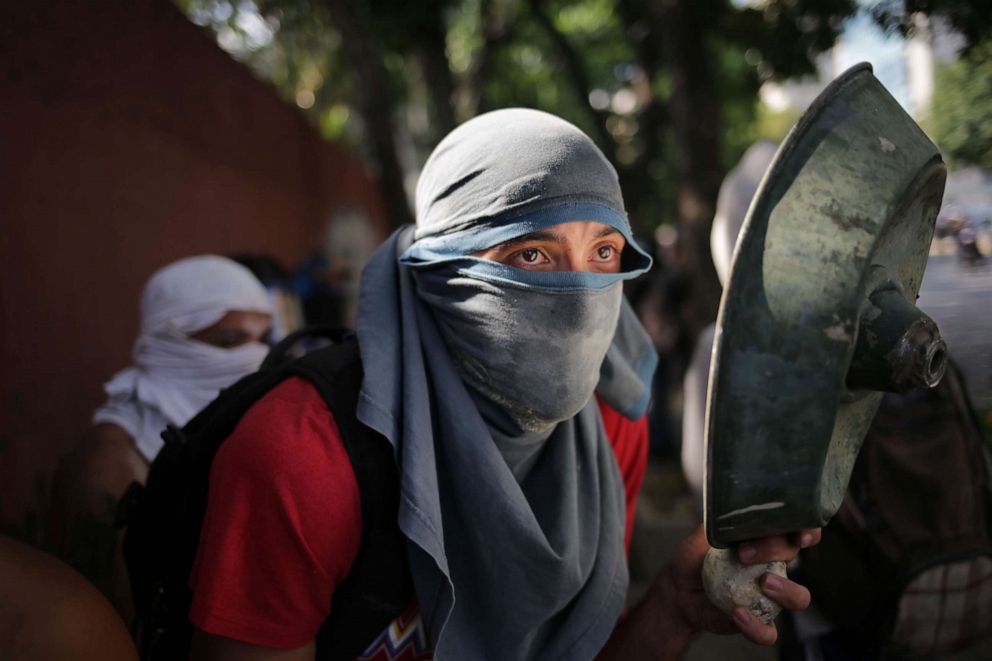
Pompeo and Russian Foreign Minister Sergei Lavrov spoke Wednesday. Lavrov accused the U.S. of "interference in the internal affairs of a sovereign state" and making a "threat against its leadership," calling it all "a gross violation of international law." But the State Department fired back, saying that it was Russia and Cuba's "intervention" in Venezuela that "is destabilizing for Venezuela and for the U.S.-Russia bilateral relationship."
In astonishing scenes on Tuesday, violence broke out on the streets of Caracas after Guaido called for an uprising in a video posted early in the morning, accompanied by opposition leader Leopoldo Lopez, who was freed from house arrest by deserting Venezuelan security forces.
Guaido and Lopez said they'd gained military backing and would begin the "final phase" of their push to oust Maduro -- but the violent crackdown by security forces seemed to belie that. Pompeo said Wednesday that "dozens of others" in the military joined Guaido, but it was unclear at what rank and how many.
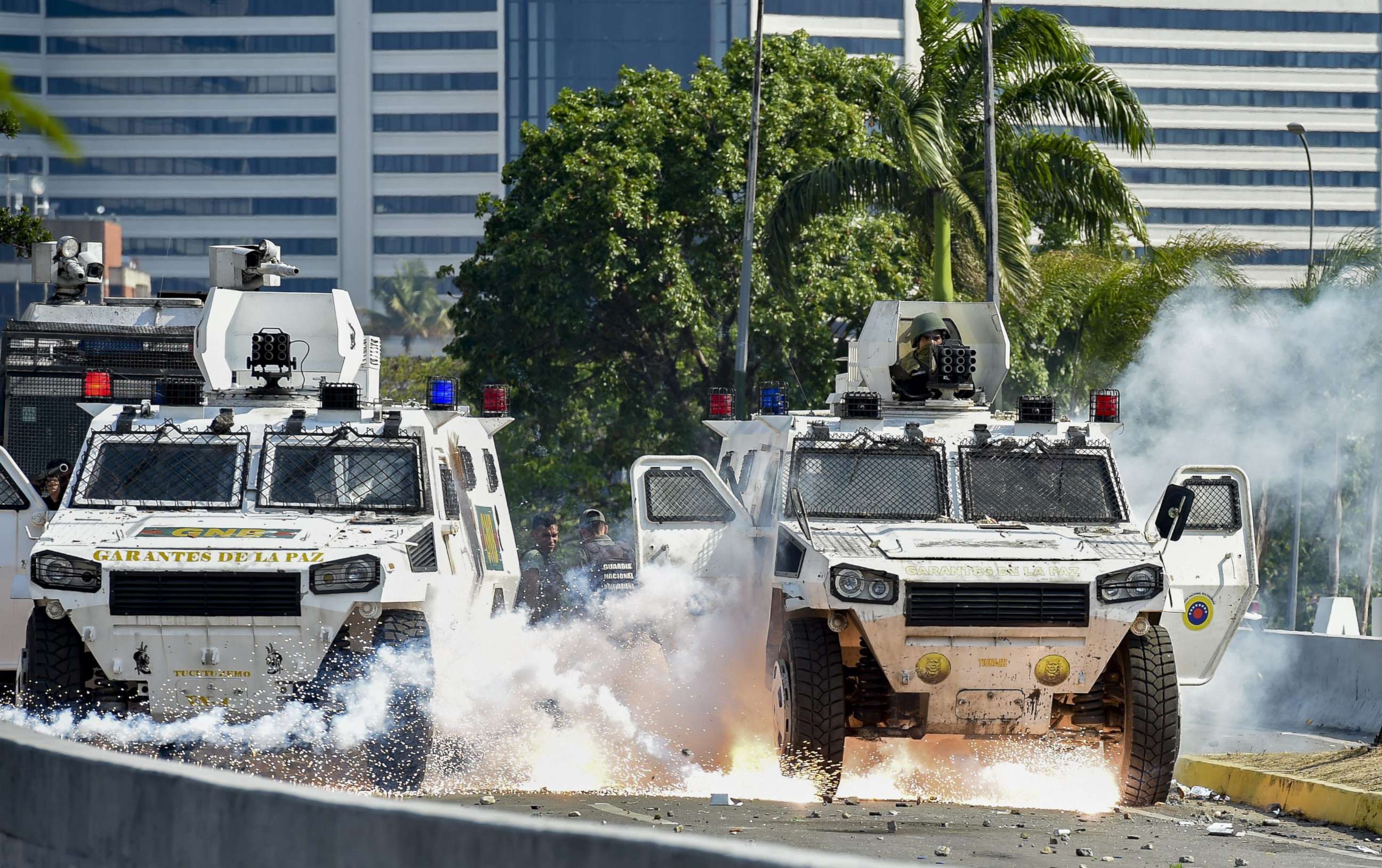
The violent clashes Tuesday marked a dramatic escalation of the political crisis that's left the country teetering on the edge of chaos for months.
While Guaido called for renewed protests Wednesday, there were increasing concerns about Maduro's ability to hold on and again ride out a wave of protests.
"Maduro does not have the backing or respect from the Venezuelan armed forces, much less the Venezuelan people," Guaido said in a video message. But Lopez, his mentor and the real leading opposition figure, entered the Spanish embassy in Caracas with his family for protection on Tuesday.
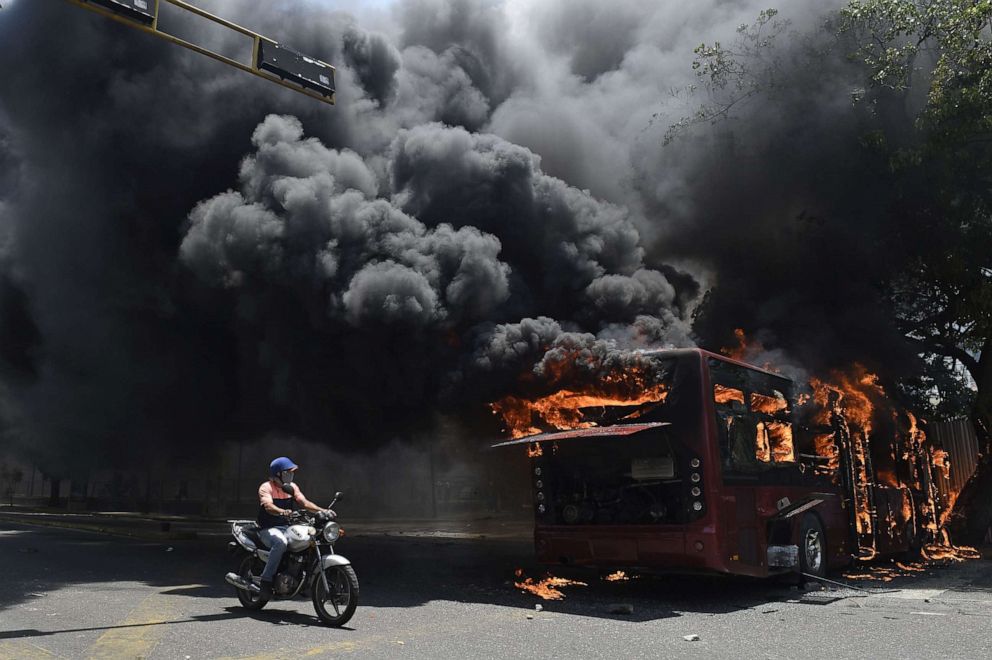
Pompeo warned again Wednesday that any action against Guaido would be a "significant escalation, and there'll be a response if that should happen."
Neither he nor Bolton would say what that response might be.
ABC News' Ben Gittleson and Luis Martinez contributed to this report.
